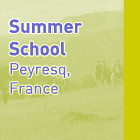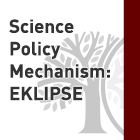Learning and the transformative potential of citizen science - results of ALTER-Net's first 'high impact action' published
The first AHIA project was led by ALTER-Net partner ESSRG and was called Public participation in science and policy: development of a science-society interface in relation to biodiversity and ecosystem services.
Citizen science is a relatively new way of knowledge co-creation, where professional scientists and enthusiastic citizens collaboratively search for answers. While it certainly presents challenges, it also provides a great opportunity for both parties to engage science and nature together, and ultimately, can result in transformative societal changes.
The number of collaborative initiatives between scientists and volunteers (i.e., citizen science) is increasing across many research fields. The promise of societal transformation together with scientific breakthroughs contributes to the current popularity of citizen science (CS) in the policy domain. The researchers examined the transformative capacity of citizen science, in particular learning through environmental CS as conservation tool.
"the assertion of transformative effects of Citizen Science learning is often based on assumptions rather than empirical observation" - Bela, G. et al. Cons. Biol.
During their study, the team reviewed the CS and social-learning literature and examined 14 conservation projects across Europe that involved collaborative CS. They also developed a template that can be used to explore learning arrangements (i.e., learning events and materials) in CS projects and to explain how the desired outcomes can be achieved through CS learning.
The ALTER-Net team found that recent studies aiming to define CS for analytical purposes often fail to improve the conceptual clarity of CS; CS programs may have transformative potential, especially for the development of individual skills, but such transformation is not necessarily occurring at the organizational and institutional levels; empirical evidence on simple learning outcomes, but the assertion of transformative effects of CS learning is often based on assumptions rather than empirical observation; and it is unanimous that learning in CS is considered important, but in practice it often goes unreported or unevaluated.
In conclusion, the researchers point to the need for reliable and transparent measurement of transformative effects for democratization of knowledge production.
The research is reported in the journal Conservation Biology (Bela, G., Peltola, T., Young, J. C., Balázs, B., Arpin, I., Pataki, G., Hauck, J., Kelemen, E., Kopperoinen, L., Van Herzele, A., Keune, H., Hecker, S., Suškevičs, M., Roy, H. E., Itkonen, P., Külvik, M., László, M., Basnou, C., Pino, J. and Bonn, A. (2016), Learning and the transformative potential of citizen science. Conservation Biology, 30: 990–999. doi:10.1111/cobi.12762).
The team also produced a video about the role of Citizen Science in biodiversity research.
Further information
- About the AHIA initiative








